- Home
- H A CULLEY
The Strategos Page 12
The Strategos Read online
Page 12
‘What choice do we have? I can only suggest that you throw yourself on Alexander’s mercy and then we work at restoring his confidence in you; after all, he doesn’t have a better man to become strategos in your place and he can’t go on forever as ruler and military commander. It’s too demanding.’
‘I’ve betrayed him once, to no avail I might add, thanks to Philip’s interference.’
He was about to carry on and tell Eurydice exactly what he thought of the young prince, but then he remembered that his wife was the boy’s mother and he bit his tongue. He pondered his options all night and eventually came up with a plan. All he had to do now was find a gullible idiot to carry it out.
If he had any doubts about what he proposed to do, they were put aside as soon as he heard the latest news from Pella. Parmenion had been appointed as strategos by Alexander. Not only had he now been officially replaced but the man wasn’t even a noble or a native of Macedon, and he was still very young for the post at only thirty two. He regarded it as the gravest of insults and began to put his plan into operation.
-o0o-
Apollophanes was the eldest son of a leading noble of Pydna, a coastal city in central Macedon not far from Alorus. His great-grandfather had been King of Pydna briefly when it had been an independent city state but then he had been killed when the then King of Macedon had captured the city forty years ago. Most Macedonians had forgotten about the sack of Pydna and nearly all the current population were descended from the new settlers who had re-populated the city afterwards.
However, Apollophanes’ grandfather had never allowed his family to forget and the hatred he felt towards the Macedonian royal house and that had been passed on down to his grandson. Ptolemy was aware of the history of Pydna and of the family’s animosity towards the kings of Macedon and decided to use it to his advantage.
Once he and Eurydice had agreed to retire quietly to his estates, Ptolemy was allowed to travel within Macedon provided he didn’t engage in political activities. It therefore excited little interest when Pydna was one of the first places he visited. Because of his earlier betrayal of Alexander, Apollophanes’ father welcomed him as a hero and invited him to stay at his house. It was then a simple matter of inflaming the deep seated hatred for the present king and his forebears. However, when Ptolemy suggested that, as the son of a leading Macedonian noble, Apollophanes should join Alexander’s Companion cavalry, the young man’s father became suspicious.
‘Why would my son, of all people, want to serve that son of a viper? Pydna might have been forced to become part of Macedon again but we do as little as possible to co-operate with Alexander and his blood-sucking officials.’
‘Because, kurios, it will give Apollophanes the opportunity to get close to Alexander. As one of his Companions, he will take his turn to guard him and thus he can kill him whilst he sleeps. Chaos will follow his death as Perdiccas is nothing more than a silly boy and Philip is a hostage in Thebes. Pydna can then seize the opportunity to regain its independence, under your leadership as king, of course.’
He was flattered to be accorded the title of kurios, which implied that he was Ptolemy’s senior as a noble, and the man’s eyes lit up at the prospect that Ptolemy dangled in front of him. Not only would the sack of the city and the execution of his grandfather be avenged but he would become king of an independent Pydna. However, he wasn’t a complete fool.
‘What about my son? How will he escape?’
‘If he chooses his moment correctly, he will be able to slip away during the night before the body is discovered. Don’t worry, my wife will ask to visit her son, Perdiccas, and I will accompany her. Thus I’ll be on hand to help Apollophanes.’
The young man positively glowed at the prospect of avenging his great-grandfather and restoring the honour of his family. It was all Ptolemy could do not to sneer at his naivety. He had no intention of being anywhere near Pella when Alexander was assassinated. He was being careful not to be implicated in the murder in any way. That way his wife could rush to Perdiccas’ side when he was elected king and propose to the Macedonian Assembly that she and her husband should be co-regents for her son until he came of age. As regent, Ptolemy would in effect be the ruler of Macedon and he would make sure that he hung onto power even after Perdiccas officially became an adult at eighteen.
It took several months before Apollophanes’ application to join the Companion cavalry was accepted and then Ptolemy bided his time until the young man completed his training and joined the roster for guard duty in the palace. Even then he was too junior to be given the important job of guarding the king’s bedchamber. Ptolemy was becoming increasingly frustrated, but then, in early 367 BC, he saw an ideal opportunity to assassinate Alexander. The drawback was that Apollophanes was almost bound to be caught. He therefore needed someone to kill him before he could be tortured and reveal Ptolemy as the instigator.
Whilst none of those who secretly supported Ptolemy would be so foolish as to murder Alexander for him, he could easily persuade a couple of them to pounce on the assassin and kill him immediately the deed was done. Hopefully it would be seen as a natural reaction by those detailed to guard the king.
The opportunity to assassinate Alexander occurred during the spring festival known as the Xandica. Apollophanes’ ilium was on guard duty for the festival and his tetrachos was in the pay of Ptolemy. It was therefore a simple matter for the tetrachos to detail Apollophanes and the two men assigned to kill him as the three chosen to guard the front of the dais on which the king sat.
The king was watching a troop of boys performing a dance in honour of Ares, the god of war, and Apollophanes was standing at the bottom of the steps leading up to the throne on which the king sat with his brother, Perdiccas, sitting beside him on a stool. Apollophanes licked his lips nervously. The dance was coming to an end and he knew that the king would stand to throw a few coins towards the dancers when they finished. It would be easier to carry out the deed when he was seated and concentrating on the performance, but still he hesitated.
The thought of exacting revenge had thrilled him when the plot had been explained to him but now, when the moment was upon him, he was scared and realised just how difficult it was to kill your first man in cold blood. He swallowed hard and steeled himself for the deed just as the dance came to an end. It was now or never.
He turned around as the king stood and stepped towards an official who held a bag of small denomination coins. He ran up the steps and thrust his spear into Alexander’s stomach. The blow was fatal, but not immediately so. The king screamed in agony and the guards on either side of Apollophanes thrust their own spears into his body, piercing his neck and his back. He died almost immediately, whereas the unfortunate Alexander took twenty minutes to die in agony.
Perdiccas was so shocked by what had happened that he fainted. He was carried away to safety and therefore spared witnessing the lingering death of his elder brother.
Parmenion had the two soldiers who had slain Apollophanes arrested and questioned but, although he suspected that they had killed him to stop him talking, he couldn’t prove it so eventually they were released and were then treated as heroes by the other Companions, much to the strategos’ disgust. The one fact he had managed to establish was that the assassin came from Alorus and that pointed to Ptolemy’s involvement, but he couldn’t prove anything so he held his tongue.
He had only recently been appointed as strategos by the late king and his position was now precarious. With Philip a hostage in Thebes, there was only one candidate for election as king: Perdiccas. He was well aware that the boy was only fifteen and so a regent would be appointed to rule for the next three years. He strongly suspected that Eurydice, as the boy’s mother would be chosen, assisted by Ptolemy. As the latter detested Parmenion he fully expected to be expelled from the country, if not executed on some trumped-up pretext.
Chapter Seven – Hostage in Thebes
367 to 364 BC
Philip swung his shield round to b
lock his adversary’s sword as the latter made a cut at his throat. He tried to take advantage as the ephebe opposite him exposed his body momentarily, but the Macedonian prince was off balance and he missed; as a result he lost concentration as he tried to recover. The other boy brought his wooden practice sword down in a clanging blow on Philip’s bronze helmet, stunning him. His opponent yelled in triumph and thrust the blunt point of his sword at Philip’s thigh but the prince spun away and brought the rim of his wooden shield down on the other boy’s leather clad foot. His yell of triumph changed to a howl of agony just as their instructor called a halt to the practice session.
As the two ephebes stood there panting, Philip noticed a cloud of dust approaching on the road which ran from the city of Thebes to the large complex where Epaminondas based himself when he wasn’t away on campaign. The buildings sat in the middle of the Boeotach’s vast estate just outside the city. They consisted of a house for Epaminondas and his family, a series of low buildings where the slaves and other estate workers lived, a barracks that housed both his bodyguard and the soldiers hired to guard the estate and an academy for the thirty Macedonian ephebes and twenty Theban youths who had been chosen to train with them. Epaminondas’ personal servants, scribes and aides lived in the house itself.
As the dust cloud grew nearer Philip and his Companions could see that it was thrown up by thirty Theban cavalrymen who were escorting a civilian in a richly embroidered short red chiton, over which he wore a plain red military cloak made of very fine wool called a chlamys, pinned at the right shoulder with an ornate jeweled broach.
‘What are you idiots gawping at?’ the chief instructor yelled and the ephebes rushed to put away their weapons and armour in the building where they slept ten to a room. They quickly shed their sweaty clothing and rushed outside again ready for the next lesson, which was wrestling.
By the time that they had returned to the training ground the horsemen had ridden through the gates in the wall surrounding the complex. Whispered rumours soon reached the prince as he squared up to another ephebe. The man in the red chiton and chlamys was apparently another Boeotarch, though one with a purely political role, who had come with a summons for Epaminondas to appear in front of the assembly. Philip knew that there were seven Boeotarchs, all of whom were elected at the start of each year. They formed the inner council who led the government of Boeotia and the army commanders were selected from amongst them. However, it was a role that all of them sought in order to make their name and there was a great deal of rivalry for selection. As a consequence, those not selected were jealous of those who were.
Philip was well aware of this and was concerned for his mentor as he had many enemies in the Theban Assembly, especially amongst the other Boeotarchs. He had little time to wonder what was going on as his opponent had taken advantage of his distraction and had grabbed him around the body and slammed him down hard on the beaten earth.
Three months later Philip sat on his horse alongside Epaminondas and watched as the Theban army attacked the city of Argos. Epaminondas had used his lithobolos to bombard the top of the walls for three days and now five siege towers were slowly trundled towards the walls. The defenders fired arrows and threw javelins at the attackers whilst the Theban archers returned fire from behind large whicker shields, each carried by two hoplites. Both attackers and defenders had to expose themselves to fire their arrows but the better trained Thebans seemed to winning the war of attrition, despite the fact that they were firing up the enemy peltasts.
Argos lay on the coast near the intersection of the borders of Corinth, Arcadia and Laconia – the latter being territory still under Spartan control. As such, it was a key city for Thebes to capture in the war against Sparta.
Epaminondas had learned from his abortive campaign in 369 BC when they had defeated the Spartans, but failed to gain any territory permanently. The previous year he had won both the Achaeans and the Arcadians to his side through diplomacy, but it availed him little as the Spartans, Athenians and Corinthians had combined to hold the Isthmus of Corinth against him. This time he had made sure that his allies had taken control of the Isthmus first so that his army had no trouble in traversing the isthmus and entering the Peloponnese.
Philip had grown to admire Epaminondas enormously and the Boeotarch, in return, found the Macedonian boy to be a talented and eager pupil. The two had spent many hours together before the army left Thebes discussing previous battles fought, both between various Greek city states and against the Persians. Epaminondas would ask Philip to analyse why a particular battle had been won or how it had been lost, what had made a potential victory into a defeat and what had been the turning point that had changed a potential disaster into a victory.
He also taught Philip about siege warfare, particularly the use of siege engines including wooden towers high enough to allow the besieging army to attack the defenders on top of the defensive walls, battering rams to break open gates, bolt-throwing crossbows called gastraphetes, stone throwing artillery called lithoboloi, and tunneling techniques to get under the walls and into a city.
Philip knew that, until fairly recently, siege warfare had mainly consisted of blockading a city until it was starved into surrender. The problem was that most Greek armies were made up of soldiers who were called up for a limited period from other occupations and who, therefore, weren’t able to stay in the field for a long siege.
However, the Carthaginians had developed siege engines which meant that cities could be captured quickly. The first use of such tactics had been during the siege of Syracuse thirty years previously. The walls of Syracuse proved too strong but the Tyrant of Syracuse, Dionysius, had learned from them and captured the Phoenician city of Motya in 397 using battering rams, siege towers and ladders to capture the walls.
Now he could see them in action. Each tower held sixty men who would make the initial assault onto the top of the wall. More hoplites followed on behind the tower who would swarm up the inside of the tower to support the first sixty once they had secured a bridgehead on the walls. The initial groups of sixty were drawn from the Sacred Band of Thebes. This was a group of professional soldiers made up of one hundred and fifty pairs of male lovers. Because of their close relationship, each pair could be relied upon to fight to the death to defend each other. This made them a formidable fighting force and few were prepared to face them in battle.
Philip had met the Sacred Band and had been impressed by them when he watched them train. He was coming to realise that his own sexual tastes were bisexual in nature but his interest in other boys was driven by his libido, not by any romantic attachment. Nevertheless, he could understand their devotion to each other and the value that this had on the battlefield.
Whereas the military training that all ephebes underwent had continued every day that he was at the academy, Philip’s strategic education had been of necessity somewhat intermittent and spread over a long period of time as Epaminondas was engaged in dealing with his political enemies in Thebes as well as the complex diplomatic situation within Greece at the time.
On the day that the man in the red chiton had come to the house, Epaminondas had been forced to accompany him back into the city to answer charges that he had acted outside the bounds of his authority during his first two campaigns. Fortunately most Thebans were well aware how fortunate Thebes was to have such a great political and military leader and the charges against him were thrown out. Nevertheless, defending his reputation had been a distraction that he could well have done without.
Now they both watched as the Sacred Band leaped from the platforms on top of the towers onto the parapet and started to carve their way through the defenders. Gradually all five bridgeheads were established and more and more Theban hoplites joined the Sacred Band to take control of the walls.
After that, it was just a matter of opening the gates to allow the army to rush into Argos and pillage and burn the city. Philip had learned a great deal from watching the assault and he re
alised how important preparation had been to the success of the attack. The lithoboloi may not have been vital in the capture of Argos but they been instrumental in lowering the morale of the defenders prior to the assault. He had also noted how the ground had been levelled and a roadway constructed on which the towers could be trundled forward without getting stuck. The work had been carried out at night so that the enemy couldn’t fire at the workers. Without that preparation the towers would have been useless.
Once Argos had fallen, the Boeotarch led his army deeper into Laconia but the Spartans refused to meet him in the field. Having lost three major battles against him in previous years, they weren’t about to risk it again. The loss of manpower was a serious problem as the Spartans were not a numerous people and they had relied upon their fearsome reputation to keep their colonies subdued. That was no longer working.
Eventually Epaminondas was recalled to Thebes. He remained undefeated but his failure to make many concrete long term gains, apart from capturing Argos, meant that his jealous enemies at home could now stir up popular opinion against him.
Early the next year Lycomedes, an enemy of Epaminondas, rose to prominence in Arcadia and Thebes lost a valuable ally. Even worse, with Spartan help, the Argives massacred the Theban garrison left to defend Argos and the city returned to Spartan control. The situation was now worse for Thebes than it had been two years previously.
Secretly Philip was pleased at the setbacks faced by Thebes. If it was ever to become the dominant Hellenic power, Macedon would eventually have to face the other Grecian armies on the battlefield, so the more that Thebes, Athens and Sparta tore chunks out of each other the happier he became.
-o0o-
Perdiccas may not have been as mature or as clever as his younger brother but he soon realised that Ptolemy wanted to be more than regent. He should be advising the young king on what decision to make and explaining the implications of each course of action so that he could learn how to rule. Ptolemy did nothing of the sort; he and Eurydice ruled without involving him in any way and he grew more and more resentful of the fact that he was merely a figurehead to be trotted out for festivals and important occasions.

 The Wolf and the Raven
The Wolf and the Raven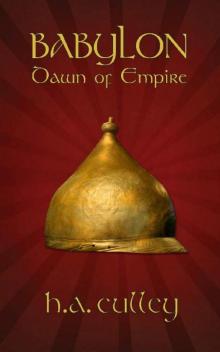 Dawn of Empire
Dawn of Empire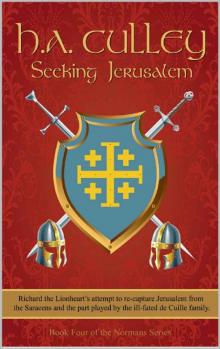 Seeking Jerusalem
Seeking Jerusalem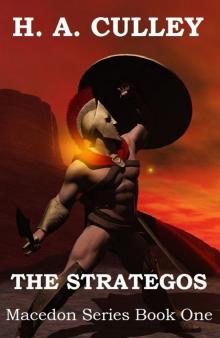 The Strategos
The Strategos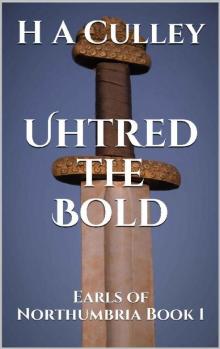 Uhtred the Bold
Uhtred the Bold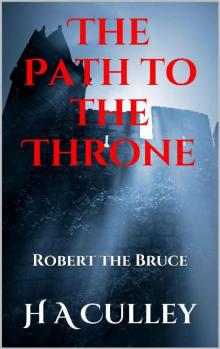 The Path to the Throne
The Path to the Throne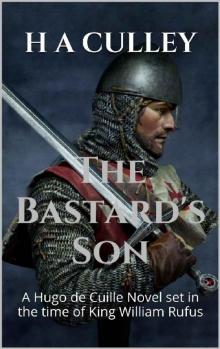 The Bastard's Son
The Bastard's Son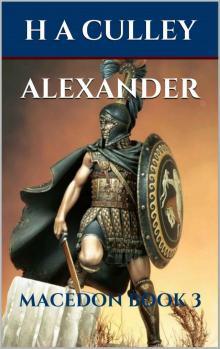 Alexander
Alexander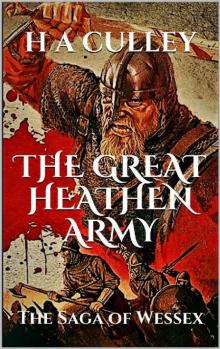 The Great Heathen Army
The Great Heathen Army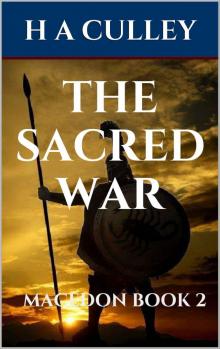 The Sacred War
The Sacred War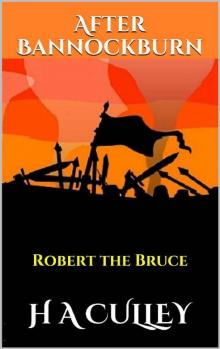 After Bannockburn
After Bannockburn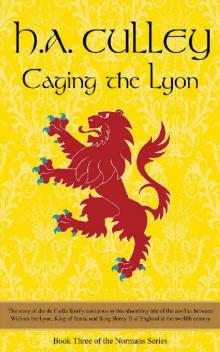 Caging the Lyon
Caging the Lyon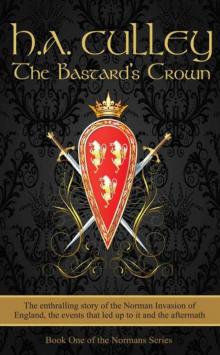 The Bastard's Crown
The Bastard's Crown WHITEBLADE
WHITEBLADE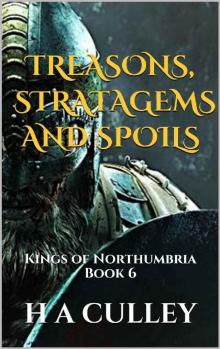 TREASONS, STRATAGEMS AND SPOILS: Kings of Northumbria Book 6
TREASONS, STRATAGEMS AND SPOILS: Kings of Northumbria Book 6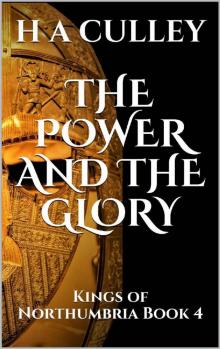 THE POWER AND THE GLORY: Kings of Northumbria Book 4
THE POWER AND THE GLORY: Kings of Northumbria Book 4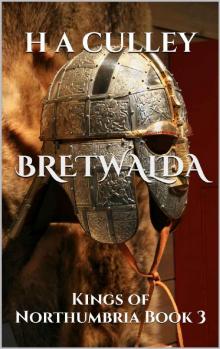 BRETWALDA: Kings of Northumbria Book 3
BRETWALDA: Kings of Northumbria Book 3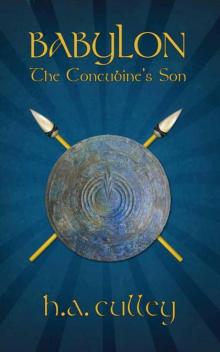 The Concubine's Son
The Concubine's Son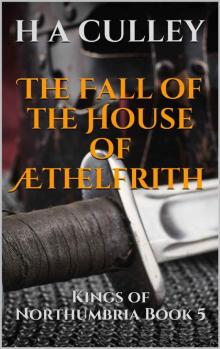 The Fall of the House of Æthelfrith: Kings of Northumbria Book 5
The Fall of the House of Æthelfrith: Kings of Northumbria Book 5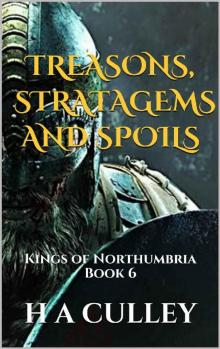 TREASONS, STRATAGEMS AND SPOILS
TREASONS, STRATAGEMS AND SPOILS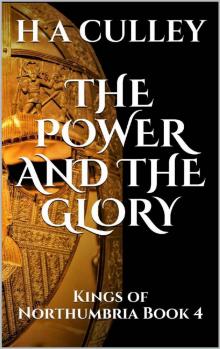 THE POWER AND THE GLORY
THE POWER AND THE GLORY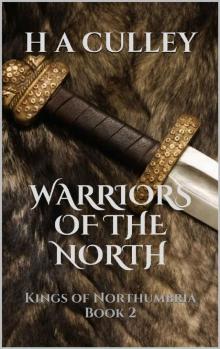 WARRIORS OF THE NORTH
WARRIORS OF THE NORTH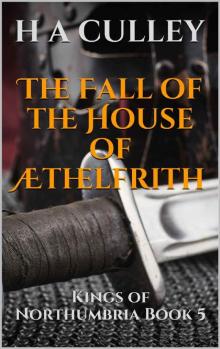 The Fall of the House of Æthelfrith
The Fall of the House of Æthelfrith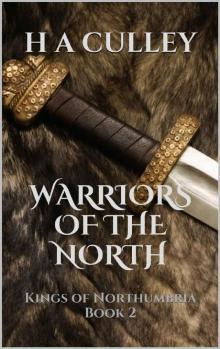 WARRIORS OF THE NORTH: Kings of Northumbria Book 2
WARRIORS OF THE NORTH: Kings of Northumbria Book 2 WHITEBLADE: Kings of Northumbria Book 1
WHITEBLADE: Kings of Northumbria Book 1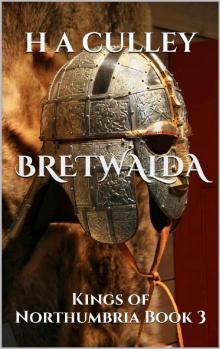 BRETWALDA
BRETWALDA